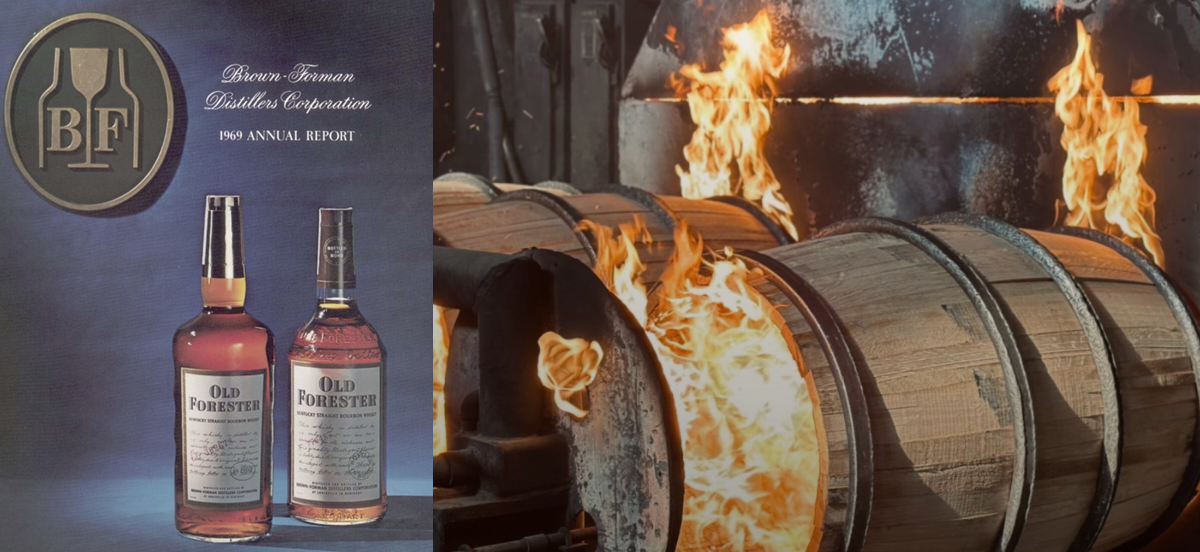
Founded in 1945, Brown-Forman Cooperage (formerly known as Bluegrass Cooperage) was the longest-standing cooperage in Kentucky and the second largest cooperage in existence. This morning, Brown-Forman announced they will be closing the doors of the Louisville Cooperage.

Special Report: Today’s news coming from Brown-Forman has a special connection to Global Sales & Specialty Barrel Procurement Jessica-Ann Zimlich of Midwest Barrel Company. Read on as she shares her personal connection and thoughts on the closing of Brown-Forman Cooperage (AKA: Bluegrass Cooperage).
Consider this the End of an 80-Year Era in Kentucky
Wow, there’s a lot to unpack here. A lot more that I’d like to unpack but can’t. Even though we knew this was coming, seeing it in print hits differently. Honestly, it makes me want to step away from my desk, retreat to the back storage room, and take a moment to mourn the loss of this Kentucky legacy. It’s a sad day for the industry as a whole, yet it feels incredibly close and personal—because it is. Behind these stories are real people.
The Bourbon Barrel Industry – My Personal Connection
Why the personal sentiment? Because of Albert Leo Zimlich Jr., my husband’s grandfather.
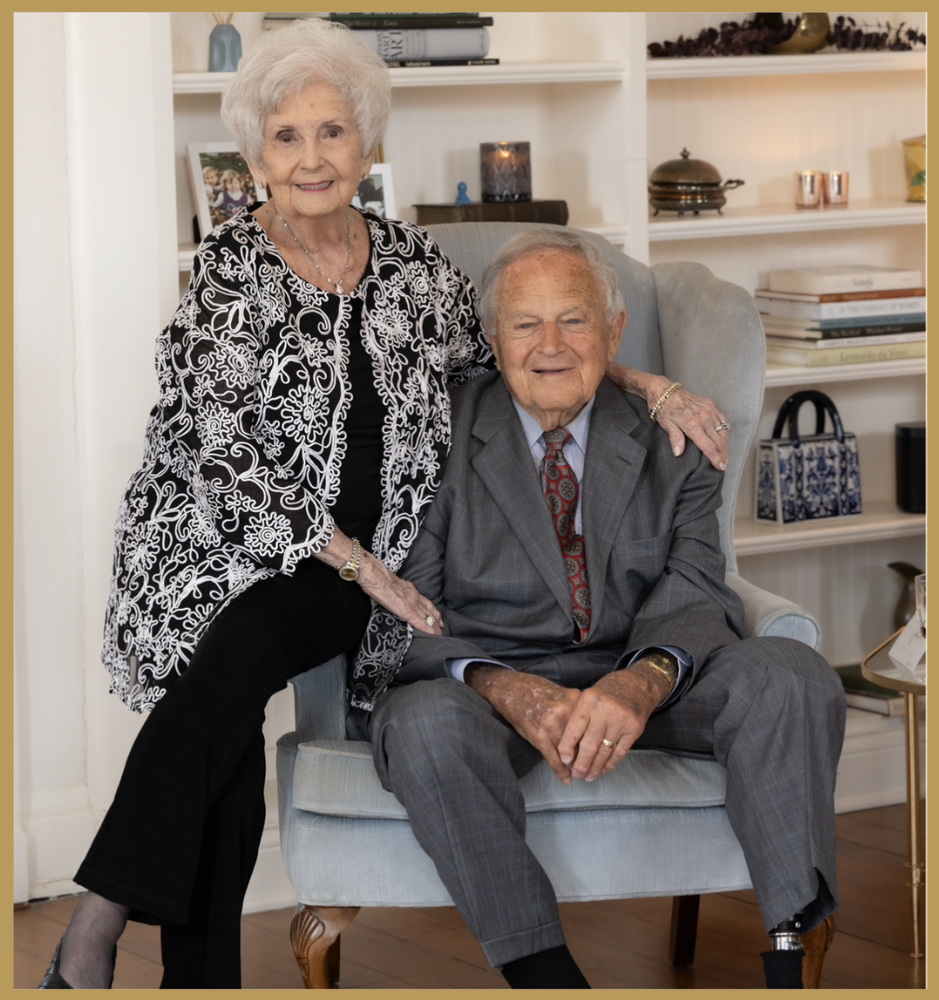
From 1951 to 1995, ‘Bert’ dedicated 44 years to Brown-Forman, holding titles such as VP-Director of Engineering, President of Bluegrass Cooperage for 20 years, and President of Jack Daniel’s Distillery. Throughout his many roles at Brown-Forman, he consistently oversaw the cooperage, ensuring its operations and standards remained a priority.
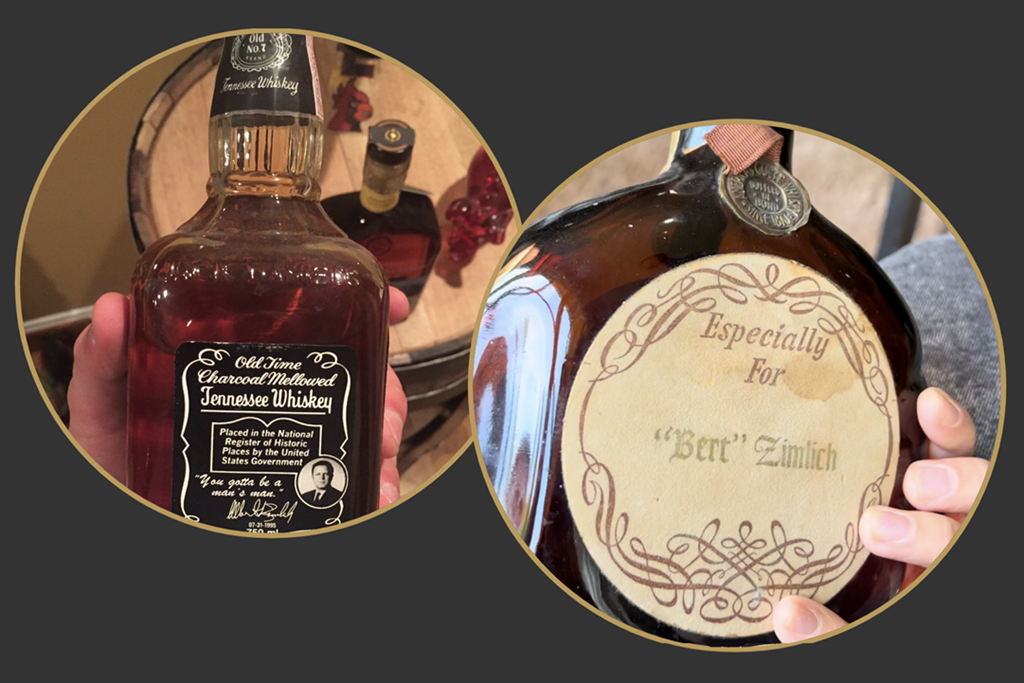
Stay Informed: Sign up here for the Distillery Trail free email newsletter and be the first to get all the latest news, trends, job listings and events in your inbox.
From the stories I’ve heard, it went like this. After graduating from Louisville’s J.B. Speed School of Engineering, Bert debated moving to Florida for an engineering job. Brown-Forman’s recruiter, with a touch of humor, said, “That’s a military base—you’ll have way too much competition for the ladies. You should stay in Louisville.” It worked. He stayed, built an incredible career, and married the love of his life, Estelle, the true gem of the Zimlich family.
Brown-Forman has a long-standing policy (or had—unsure if it still stands) of forced retirement at 65. Think Lincoln Henderson retiring from Brown-Forman and going on to start Angel’s Envy. In 1990, when Bert retired, he wasn’t ready to step away entirely. And barrels are his passion. He founded his own stave mill in Athertonville, Kentucky—ZAK—alongside his son Bruce, cutting staves to sell back to Brown-Forman.
Not long after, the man Bert had mentored to fill his role at the B-F cooperage tragically passed away. Bert was called back to help train the next successor before finally retiring for good. Meanwhile, ZAK Cooperage grew, eventually purchasing enough cooperage equipment to start building barrels to Brown-Forman’s specifications.
At 95, Bert still keeps a watchful eye on the industry. He spends his days watching ZAK’s cameras from home and stays BCC’d on every email to keep tabs on operations and distillery clients.
When I started dating my now-husband, Zach, meeting Bert felt like meeting a barrel industry legend. At the time, I had been working in the used barrel market for two years and had so many questions. After 75 years in the business, I knew Bert had all the answers. I wanted the history, the stories, and yes, even the drama.
Bert is a builder, a family man, and one of the most loyal, soft-spoken people I’ve ever met. He doesn’t speak often, but when he does, it’s with purpose. His favorite topic? Barrels—making him one of my favorite humans. He’s proud of his time at Brown-Forman and the legacy he spent decades building.
It’s because of his deep respect for Brown-Forman that I came to admire the company, too. That’s why it breaks my heart to see something he helped build being torn down. I didn’t call him for a comment today, that felt too invasive. There are countless others in the industry with similar stories.
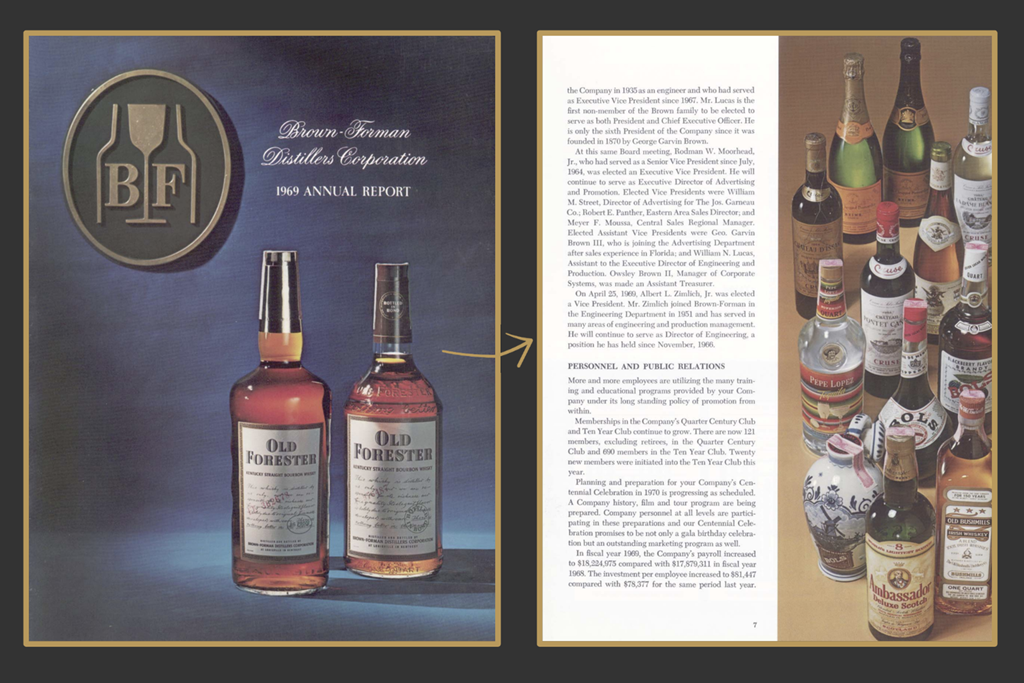
“On April 25th, 1969, Albert L Zimlich, Jr. was elected a Vice President. Mr. Zimlich joined BF in the engineering department in 1951 and has served in many areas of engineering and production management. He will continue to serve as Director of…”
The Beginning of an Era
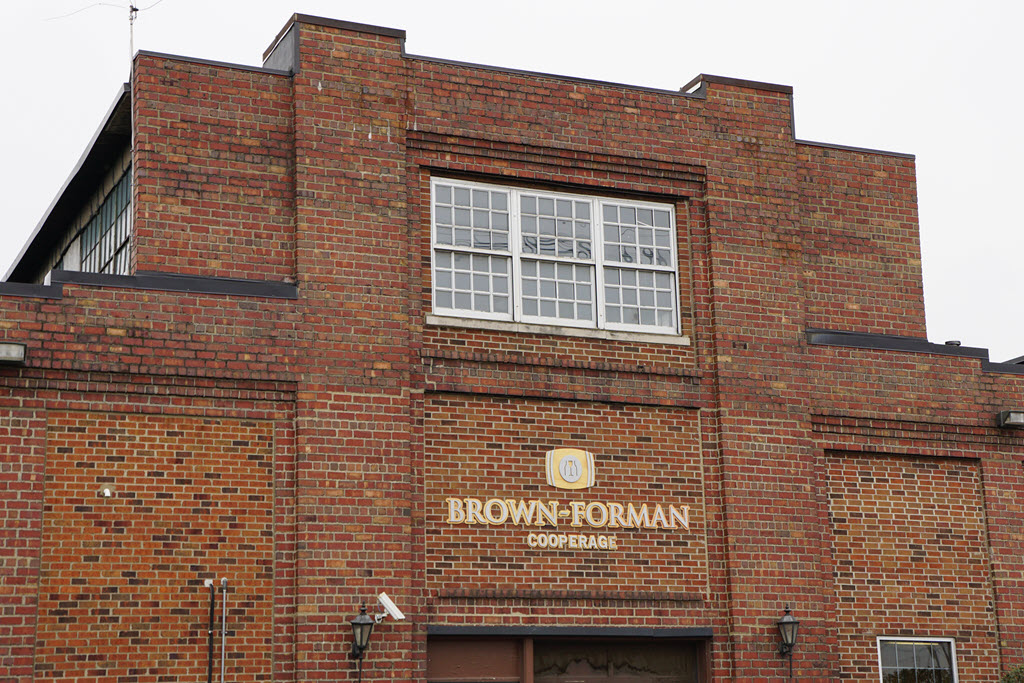
Before I hypothesize how this will impact the bourbon barrel industry going forward, I need to pay homage to the origins of Brown-Forman’s cooperage and how it all began. This story is paraphrased from the words of Bert Zimlich during an interview in 1985.
“Bluegrass Cooperage was established in 1945 to address the critical barrel shortage faced by Brown-Forman Distillers Corporation.”
After World War II, whiskey production surged, leading to a scarcity of both materials and barrels. Most cooperages owned by major distillers prioritized supplying their parent companies, leaving Brown-Forman with limited options to source barrels from cooperages like Louisville Cooperage.
Recognizing the urgent need for a dedicated supply, W.F. Lucas sought a location to manufacture barrels specifically for Brown-Forman. The site they selected had been part of Wood Mosaic, a facility that produced gun stocks for rifles during the war. Once the war ended and gun stock production ceased, the facility naturally transitioned into barrel manufacturing, building on its woodworking and wood processing history.”
Related Story – A Day on the Trail: A Behind the Scenes Tour of the Brown-Forman Cooperage [Video]
The End of an Era
Unfortunately, Brown-Forman faced significant challenges in maintaining the profitability of barrel production. The Louisville cooperage had become financially unsustainable, leading Brown-Forman to sell 50% of its cooperage shares to Independent Stave Company in 2024.
With today’s announcement of the Louisville cooperage closing, 210 employees will be directly impacted. The ripple effects will extend to the family-owned stave mills that have supplied staves to Brown-Forman for over 70 years. Many of these mills may face closure or be forced to pivot into hardwood lumber production, a market that is already oversaturated and struggling.
The log industry is the cornerstone of barrel production, yet it remains its most fragile bottleneck. With mills closing, a significant drop in log prices could drive even more loggers out of the industry, further constraining the already limited supply of high-quality oak. Without skilled loggers, the entire supply chain, from stave mills to cooperages, faces disruption, threatening distilleries’ ability to maintain consistent barrel production.
Should bourbon production rebound in the future, it raises questions about how well the industry will adapt and who will emerge as the key distillery players capable of maintaining a steady barrel supply? We may see the cooperage industry become increasingly vertically integrated and distillery-owned.
From a marketing perspective, this shift poses a significant challenge for Brown-Forman employees, who may no longer be able to emphasize full control over barrel production and flavor profiles in their storytelling—a key aspect and point of pride in their branding.
My office at Midwest Barrel Company sits on Whiskey Row, across from Old Forester. As I stare out the window at their iconic building, I can’t help but wonder “what’s next?”
For years, I’ve encouraged tourists on the Kentucky Bourbon Trail to visit Old Forester. “You can see a mini cooperage right in downtown Louisville,” I’d say. “Watch a barrel being made, see the fire!” Fire is always a crowd-pleaser.
That cooperage display, which I’d argue they spent millions on, has been a true selling point—a highlight of the bourbon experience.
But now, I can’t help but ask: Will it stand as a proud homage to tradition, or will it become a bittersweet reminder of what was lost?
Final Thoughts
The cooperage industry has always been challenging, especially now. This closure is a stark reminder that nothing stays the same. Change is inevitable, but that doesn’t make the loss of this legacy any easier to process.
As someone who married into a family with generations invested in the barrel-making industry, I feel the weight of this loss deeply. Yet, I remain hopeful and committed to helping shape the future of this industry, even as we mourn the end of an era for Louisville and Brown-Forman.
Please help to support Distillery Trail. Sign up for our Newsletter, like us on Facebook and follow us on Instagram and Twitter.





